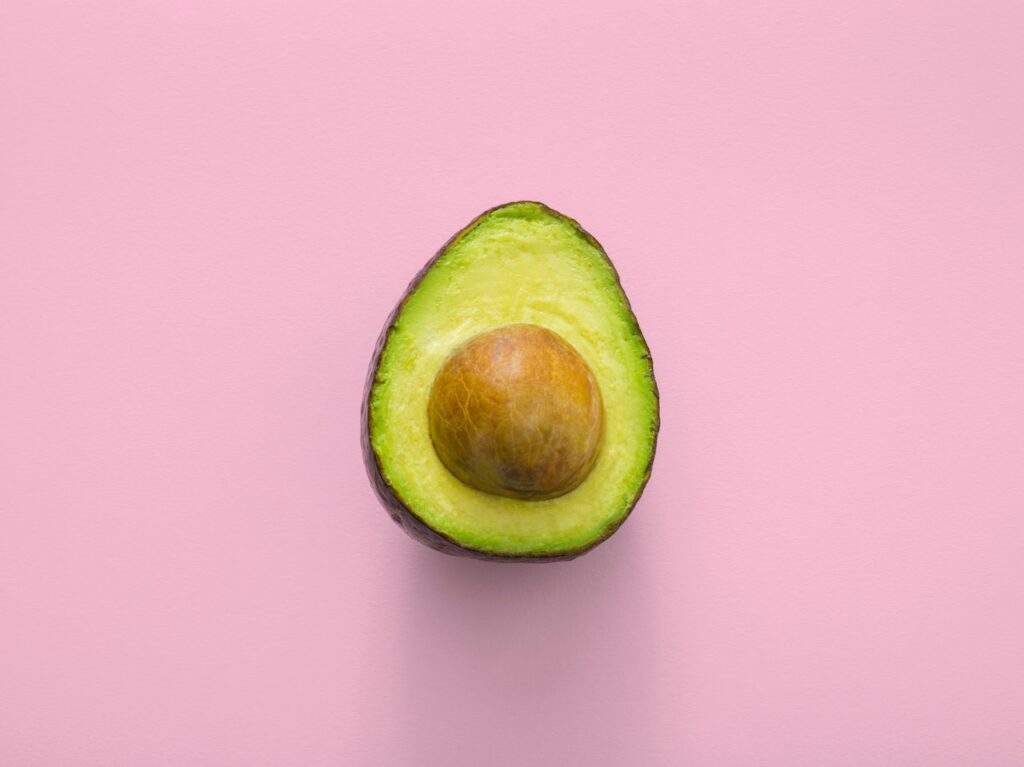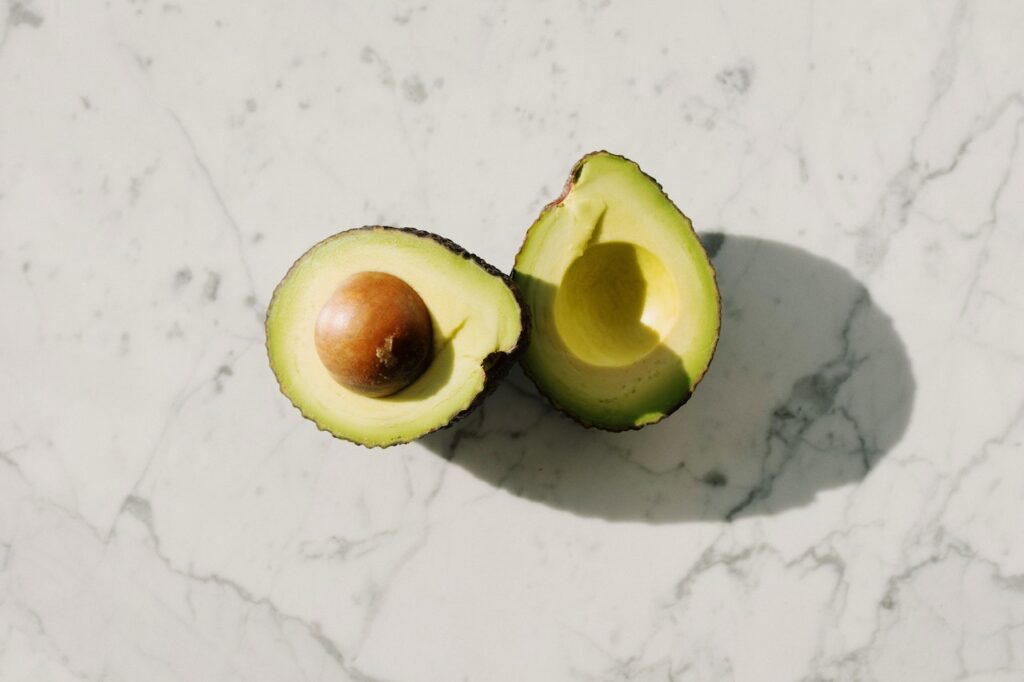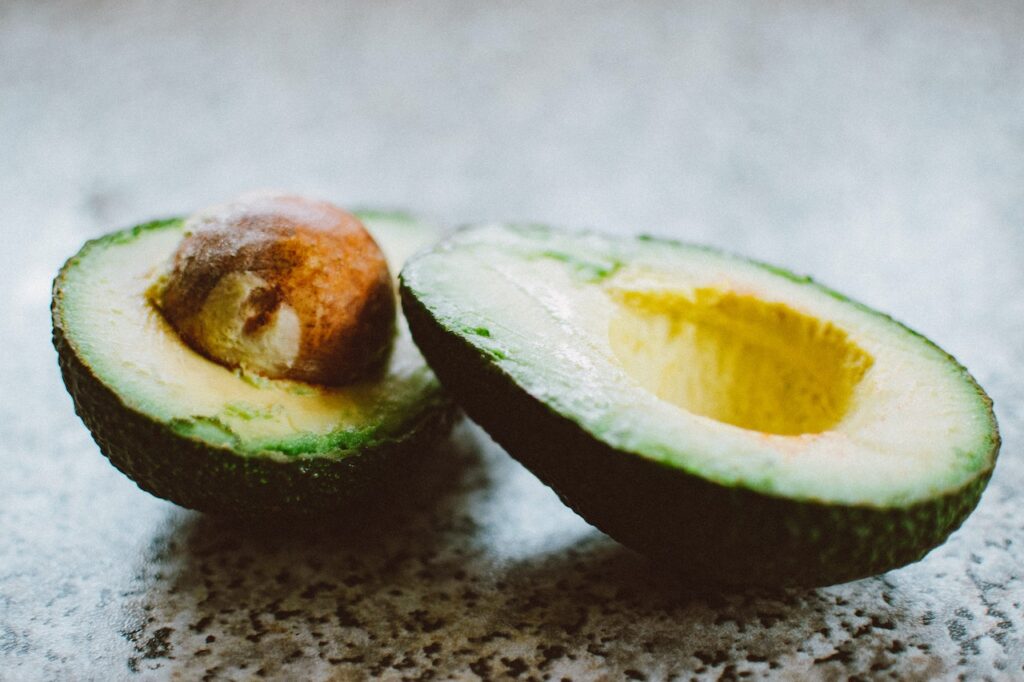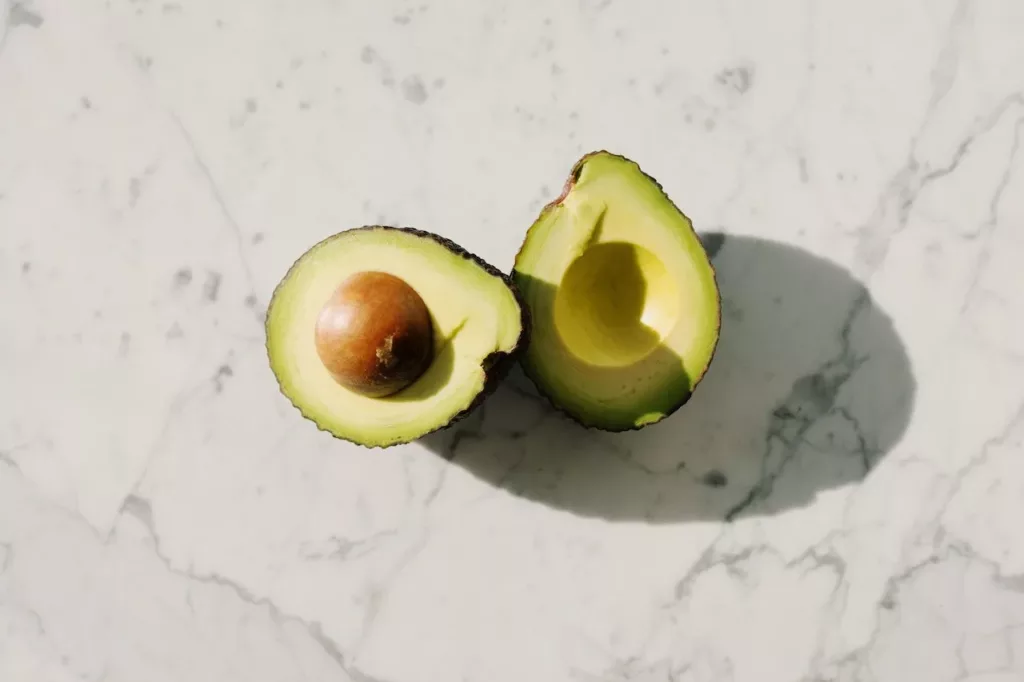Avocado is undoubtedly one of the foods that have grown in popularity in recent years. Its high monounsaturated fat content and antioxidant properties have elevated it to the forefront of healthy diets. But what about our pets? Can cats eat avocado?
Table of Contents
You may be interested: Can Dogs Eat Lettuce? The Surprising Answer!

Is avocado good for cats? Can cats eat avocado?
Although avocados are a safe and healthful diet for humans, they may be detrimental to many animal species, including cats, dogs, horses, goats, sheep, rats, and some birds.
Specifically, avocado is considered an unsuitable food for cats due to two causes:
- On the one hand, it contains a lot of fat, which might contribute to the development of obesity and other related problems (such as hepatic lipidosis, pancreatitis, diabetes, etc.).
- On the other hand, avocados are harmful to cats’ bodies because they contain a compound called persin, which we shall cover in more detail in the next section.
Why is avocado toxic to cats?
Because it contains the poison persin, regarded avocado as a dangerous meal for cats. The avocado plant naturally makes persin, an antifungal chemical, which is found in the fruit, seed, bark, and leaves to defend itself against fungal development. Although this chemical is safe for humans, it can make our dogs drunk.
The reality is that there is a wide range of information released on how deadly avocado poisoning in cats is. Many claims that this intoxication only seldom affects felines. Parallels do exist, though, that depict severe avocado poisoning cases. It is thus better to keep this food out of our kittens’ reach considering the harm that consuming it might cause. Also keep in mind that persin is present in all parts of the avocado plant, including the leaves, seeds, and bark, so you should keep your cat away from the entire plant and fruit.
Despite the research being done to determine the hazardous dosage of avocado in various species (such as mice and goats), it should be noted at this stage that there is presently no information on the harmful dose of avocado for cats. Studies on the issue would provide a deeper comprehension of the severity and etiology of this kind of poisoning in cats.
Read: Can dogs Eat Pecans? Nutritional Benefits of Pecans for Dogs

What happens if my cat eats avocado?
The persin found in avocados can cause toxicity on two different levels:
- At the cardiac level: A pericardial effusion—a fluid buildup around the heart—occurs in avocado-impaired cats, along with congestion and respiratory distress.
- At the digestive level: it can cause an inflammatory process in the stomach and intestine, giving rise to clinical signs such as vomiting and diarrhea.
Mild or moderate avocado poisoning is depicted in a large number of images. In this species, there have been cases of severe poisoning, though. As a result, if you think your cat may have eaten avocado, you should be on the lookout and knowledgeable about any possible risks.
All avocado parts are poisonous to cats because they all contain persin, as was mentioned in earlier sections. My cat licked an avocado, so what? In this instance, likely, your cat didn’t consume enough poison to cause poisoning. In the hours that follow, it’s crucial to keep an eye on their health, and if any of the aforementioned signs of intoxication do, head to a veterinary facility as soon as you can.
My cat has eaten avocado. What do I do?
You may be wondering what to do if your cat accidentally eats avocado given the potential risk that this food poses to cats. In that case, it is best to visit your dependable vet as soon as possible if you suspect or know for sure that your cat has eaten an avocado or another part of the plant. Although many avocado poisoning cases in cats show only mild symptoms, it is still best to visit a vet clinic to check on your cat’s health given the possibility of more severe symptoms.
It will be necessary to set up treatment if signs of intoxication are found to prevent the persin’s toxic effects. In particular, gastrointestinal decontamination will be carried out using various techniques depending on how long it has been since the fruit was consumed (e.g., inducing vomiting, gastric lavage, or administration of products that stop the poison from being absorbed, like activated charcoal).
Read: Can dogs Eat Bananas? When Are Bananas Bad for Dogs?
Final thoughts : Can cats eat avocado?
Only the flesh of the avocado can be eaten by cats in small quantities. Since avocados contain calories, they should only consume a very small amount to prevent weight gain. Not all cats will enjoy avocados, so be sure to introduce them gradually, starting with small pieces, and keep an eye out for any negative reactions like stomach upset.

Other foods that cats cannot eat
The avocado plant is poisonous to cats, as we’ve mentioned numerous times throughout the article. There is a long list of foods that can harm these animals; however, avocado is not the only food that can do so. The most significant ones are listed below:
- Onion, garlic, and leeks: They contain thiosulfate, which can kill red blood cells and result in anemia.
- Grapes and raisins: They can result in severe diarrhea and kidney issues when consumed in large amounts.
- Citrus: They cause diarrhea and stomach aches, just like oranges or grapefruit.
- Green Tomatoes – Tomatine, a compound found in green tomatoes, is poisonous to cats. The levels of this toxin do, however, diminish as the tomato ages.
- Milk: Because adult cats frequently develop lactose intolerance, milk should not be given to them. For their part, nursing kittens should only drink milk made specifically for cats because milk from other species, like cow’s milk, can seriously upset their stomachs.
- Sausages: They can harm the kidneys because of their high salt content.
- Sweet Foods –Sugar consumption can result in hyperglycemia and liver failure, in addition to the fact that cats are unable to detect sweet flavors.
- Raw fish or meat: may include parasitic or pathogenic microorganisms that cause a variety of infectious or parasitic diseases. These foods must always be provided cooked, or in the absence of that, cooked before freezing, to reduce risks.
- Chocolate and coffee contain theobromine, a chemical that can lead to nausea, diarrhea, and stomach ulcers.
- Alcohol: Although it should go without saying, it should be kept in mind that alcohol can result in alcohol poisoning, which can lead to the animal’s death.
References: https://www.petpoisonhelpline.com/poison/avocado/
